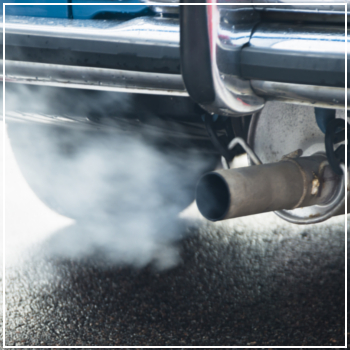Signs Your Vehicle Has an Emissions Problem
The emissions system is specifically designed to minimize the release of toxic substances into the atmosphere. Beyond environmental protection, it also contributes to fuel efficiency and ensures the engine operates smoothly. Modern vehicles typically feature components such as the fuel tank, carburetor, exhaust, and crankcase. Many newer cars also incorporate an evaporative emission control (EVAP) system, which captures and burns harmful gases before they escape into the air. Key parts of the EVAP system include: Addressing emissions issues isn't just about protecting the planet—it also safeguards public health. Failing to address these harmful emissions can lead to increased cases of asthma and carbon monoxide poisoning in nearby communities. If you're concerned about your car's emissions system, look out for the following indicators. While the check engine light might not provide specific details, its activation often signals a problem related to emissions. It could mean anything from a faulty sensor to a leak within the system, resulting in the release of hazardous gases. Reflecting on your car's recent performance, you might have observed a drop in efficiency. Since the emissions system works closely with the fuel and exhaust systems as well as the engine itself, you may have noticed reduced fuel economy or a noticeable loss of power. The emissions system prevents excess gas vapors from escaping. A sudden decrease in miles per gallon or rapid fuel consumption might suggest a leak somewhere in the system—such as the carburetor, muffler, exhaust manifold, or fuel tank. Excessive fumes or strange smells emanating from your exhaust could signal an emissions problem. This scent might linger even when the car is turned off, indicating a possible fuel leak. Given the flammable nature of gasoline fumes, it's advisable to have the vehicle towed to an auto body shop if you detect this issue. If the car is parked indoors, avoid opening the garage door and instead seek emergency assistance immediately. If the EVAP control canister has a solid cap, it risks collapsing if clogged or damaged, potentially causing leaks and disrupting the system's performance. Did your car recently fail its emissions test? If you’re experiencing any of these symptoms, consider scheduling an inspection at DaSilva’s Auto Body to diagnose and repair your emissions system. Contact our Naugatuck location to book an appointment today. Remember, addressing emissions problems promptly not only keeps your car running smoothly but also protects both the environment and your family's safety. Regular maintenance checks can go a long way in ensuring your vehicle remains compliant with state regulations while minimizing its environmental footprint. It also solves the problem that the general filter oil may flow in one direction and filter, simplifies the pipeline of the system, saves space, and makes the system layout more compact. The filter adopts imported glass fiber filter material, which has the advantages of high filtration precision, strong oil passing ability and large pollution absorption. ,, high pressure filter, In-line high pressure filter, inline low pressure filter Xinxiang Zhike Machinery Equipment Co.Ltd , https://www.zhikefilter.com Every two years, Connecticut mandates a vehicle emissions test for all drivers. While it might come as a shock if your car's system doesn’t pass, there are often telltale signs that suggest something might be wrong with the emissions system.
Every two years, Connecticut mandates a vehicle emissions test for all drivers. While it might come as a shock if your car's system doesn’t pass, there are often telltale signs that suggest something might be wrong with the emissions system.Understanding How the Emissions System Functions
Recognizing Signs of an Emissions Issue
Check Engine Light
Deteriorating Performance
Falling Fuel Efficiency
Unusual Odors
Fuel Tank Leaks